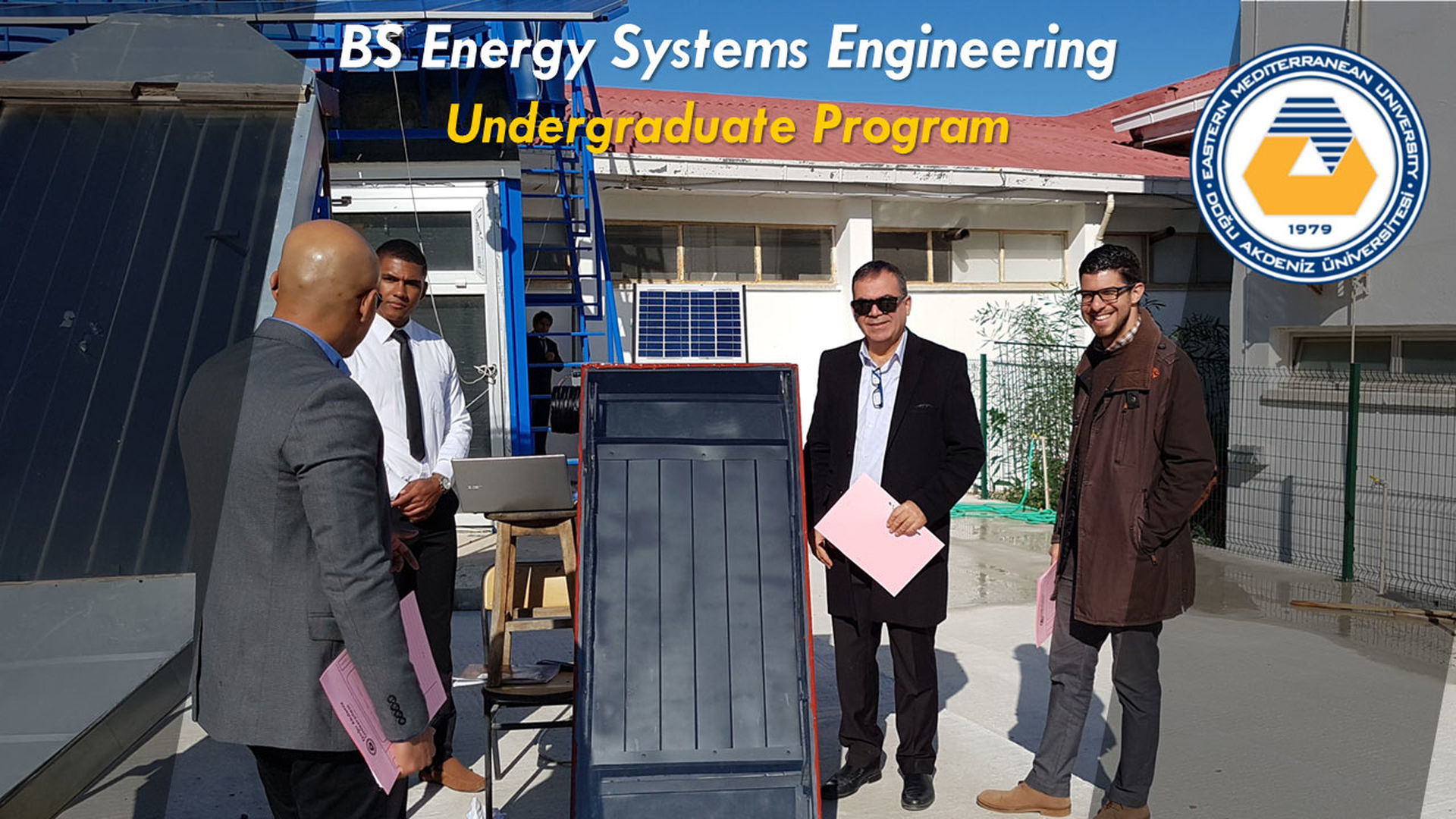
Energy Systems Engineering program is run by the Mechanical Engineering Department in collaboration with the Electrical and Electronic Engineering department. Program graduates are equipped with an ability to apply knowledge of mathematics, science and engineering principles, an ability to design and conduct experiments as well as to analyze and interpret data, an ability to design a component, system or process to meet an objective, an ability to function on multidisciplinary teams, an ability to identify, formulate, and solve engineering problems, an understanding of professional and ethical responsibilities, and global issues related to engineering, an ability to communicate effectively, the broad education necessary to understand the impact of engineering solutions in a global, economic, environmental, and societal context and a knowledge of contemporary issues. The goal is to raise graduates as modern, inquisitive, and creative engineers.
General Information
The Mechanical Engineering Department is well equipped with laboratory equipment and facilities for undergraduate experimentation and/or demonstrations. The mechanical engineering department has relevant the facilities and labs (thermal sciences, fluid mechanics, solar and aerodynamics labs) required for the the energy systems engineering program. The total floor area allocated for laboratories is about 1360 m2. With the addition of about 110 m2 computer lab spaces and 390 m2 of mechanical workshop, the total reaches to about the half of the total building area. The department has an extensive and well-equipped seminar room seating up to 150 people and a secondary seminar room for 20 people. CAD/CAM, computer and Autocad laboratories are available for teaching, projects and research, and it closely integrates the processes associated with design and development. Technical staff helping and supporting students in the machine workshop have over 10 years of experience. Apart from an academic advisor for each student, lab assistants are available to assist students. Along with the university library, the department houses another library consisting of engineering books and graduation projects. For details on facilities, please visit Laboratories.
Facilities
The Mechanical Engineering Department is well equipped with laboratory equipment and facilities for undergraduate experimentation and/or demonstrations. The mechanical engineering department has relevant the facilities and labs (thermal sciences, fluid mechanics, solar and aerodynamics labs) required for the the energy systems engineering program. The total floor area allocated for laboratories is about 1360 m2. With the addition of about 110 m2 computer lab spaces and 390 m2 of mechanical workshop, the total reaches to about the half of the total building area. The department has an extensive and well-equipped seminar room seating up to 150 people and a secondary seminar room for 20 people. CAD/CAM, computer and Autocad laboratories are available for teaching, projects and research, and it closely integrates the processes associated with design and development. Technical staff helping and supporting students in the machine workshop have over 10 years of experience. Apart from an academic advisor for each student, lab assistants are available to assist students. Along with the university library, the department houses another library consisting of engineering books and graduation projects. For details on facilities, please visit Laboratories.
The program benefits from the immense experience gained during the activities of the Energy Research Centre (EMU-ERC) and the high quality research conducted by the faculty members in the Department of Mechanical Engineering.
For a quick look at your Lab facilities, please visit our YouTube page
EMU Mechanical Department: https://www.youtube.com/@mechanicalengineeringdepar560
Thermal Sciences Laboratory: https://www.youtube.com/watch?v=aKpHmarDsYA
Career Opportunities
At the end of the Energy Systems engineering education which is based on a blend of theory and practice, students receive an undergraduate (B.S.) degree. A wide variety of public and private sector jobs are available for energy systems engineers to pursue. A greater need for engineers in the energy sector has arisen from the growing quantity of energy investments. The fields of energy efficiency, energy conservation, and energy legislation are open to graduates of the Energy Systems Engineering program. These days, investments in renewable energy sources including solar, wind, bioenergy, geothermal, and hydroelectric power plants are rising in response to the need for clean energy. Plans for expansions in thermal and nuclear power plants exist in addition to this. Significant new employment is also produced by these advances. The fields of power generation and transmission, smart grid design and implementation, green hydrogen, energy supply management, design of energy-efficient products and processes, sustainable organization, community, and business transformation, development and implementation of renewable fuels and infrastructure, sustainable transport design, environmental protection, and research are all excellent career options for graduates of energy systems engineering.
Contact
Tel: +90 392 630 1210
Fax: +90 392 365 3715
E-mail: me.info@emu.edu.tr
Web: http://me.emu.edu.tr
